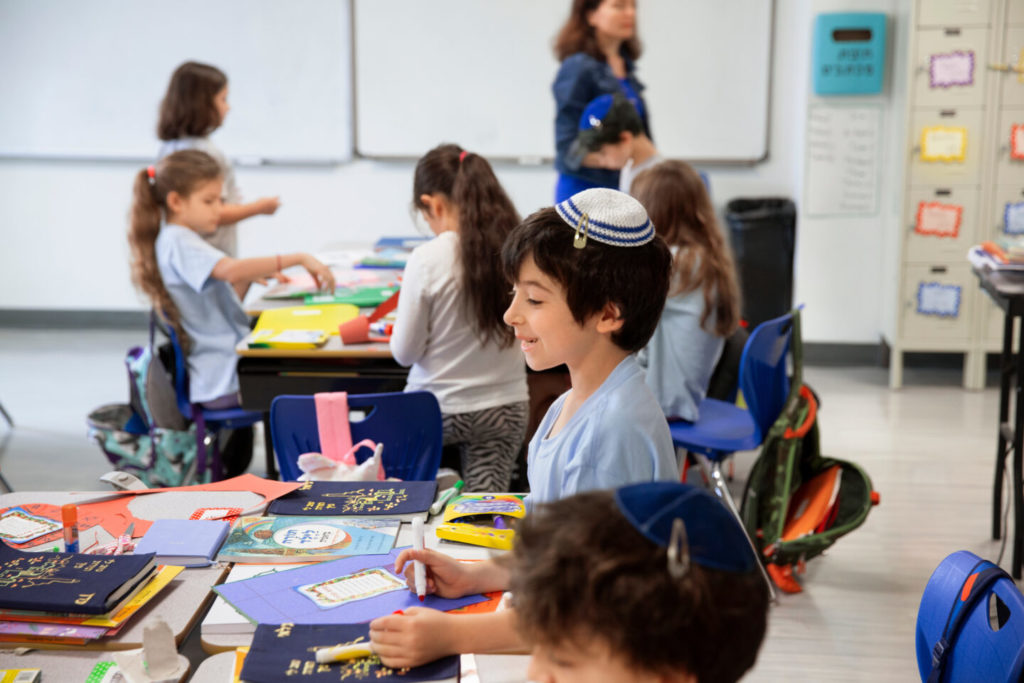Jewish school enrollment grows as parents ‘rethink their educational priorities’
Amid the rise of antisemitism in the United States since the Israel-Hamas war began, Jewish parents are rethinking how their children are educated.
“It’s been very hard for the Jewish…

Amid the rise of antisemitism in the United States since the Israel-Hamas war began, Jewish parents are rethinking how their children are educated.
“It’s been very hard for the Jewish community here in Oakland,” said Rabbi Dovid Labkowski, director of the Chabad Center for Jewish Life, which includes a Hebrew school. “The situation in the public schools has made a lot of parents rethink their educational priorities.”
One California father, Erez, recalled being disturbed by the antisemitic activity at his son’s San Francisco-area school, including an email sent to parents that compared the “genocide” in Gaza to white supremacy.
“We’d felt that the school had been moving away from our values for some time,” Erez said. “But now, it was clear that the school was taking a clear side, and they weren’t being neutral anymore.”
Like many other Jewish parents, he decided to change schools.
According to Prizmah, a Jewish education group, Jewish day schools and yeshivas received a massive influx of interest in the wake of the Oct. 7 attacks by Hamas on Israel.
Prizmah conducted a survey of over 100 schools in the U.S. and 11 in Canada shortly after the attacks. More than 90% of schools reported receiving new enrollment inquiries, with 80% bringing in new students mid-year.
A follow-up survey in January found 40% of Jewish schools had received transfer inquiries from public or independent school students. In addition, at least 1,000 Israeli students enrolled in a Jewish school or yeshiva since the start of the war.
Parents of children who transferred from a public school said they wanted their children to be in a Jewish environment (73%) and they feared antisemitism in their prior school or community (68%).
Parents from independent schools similarly valued the Jewish environment (80%) and – like Erez – weren’t satisfied with their prior school’s response to the war (50%).
The trend is continuing, too.
One-third of survey respondents reported interest in their school had grown for the 2024-25 school year. Half said it was about the same, while only 14% noted a decrease.
“The best thing that we can possibly do to fight antisemitism is to empower, educate and embrace our community, and give our children the best Jewish education that we can,” commented Prizmah CEO Paul Bernstein.
“I really need her [my daughter] to grow up in a strong Jewish environment where she knows who she is – not only about her Jewish roots, but also how important the state of Israel is to us,” said Marina Kirshenbaum, a New Jersey mother.
“I need my daughter to be stronger and more confident in who she is, and that’s what I think a private Jewish school can accomplish,” she continued. “It will teach her not only how to combat antisemitism, but also to be a proud Jew.”
And Erez from California explained why a thoroughly Jewish education became an obvious choice.
“When I stopped to think about the situation in front of me, I saw that I had two choices,” he said. “On one side I had a school that was pushing views that I thought were harmful, untrue and at odds with how I wanted my son to be raised, and on the other, there were excellent Jewish schools that could give my son a first-rate education, and impart the values and traditions that are aligned with who we are.
“We didn’t always appreciate how important it was to send our children to Jewish schools as we thought we could supplement their Judaism at home just fine,” concluded Erez. “Looking back, I ask myself how I missed this. How did I not see how important this was earlier?”
And it’s not just K-12 parents who want to return to their roots.
The majority of Jewish families with a graduating high school student have changed their outlook on college.
Two-thirds report their high school students are not applying to a previously desired school because of on-campus antisemitism.



